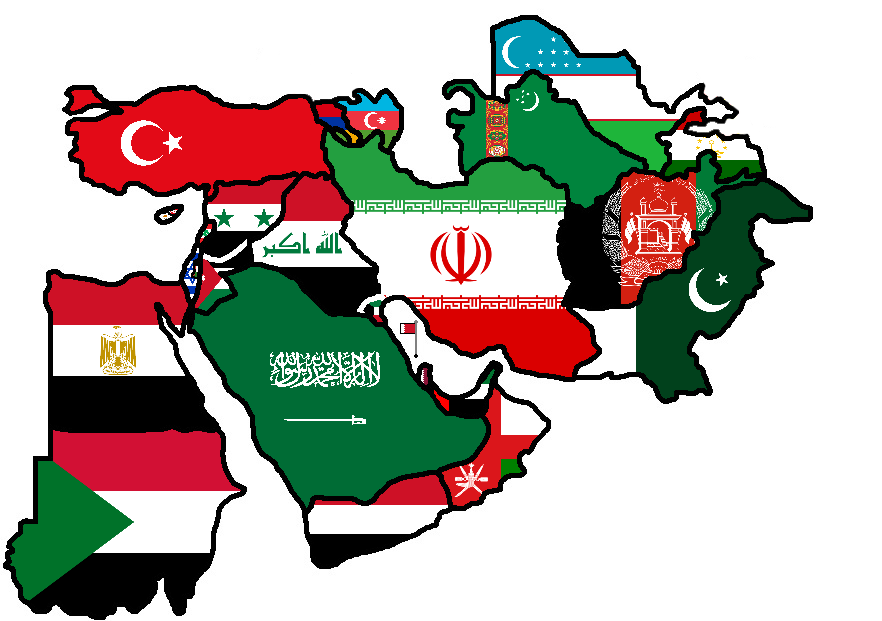
In a surprising turn of events, after a prolonged period of estrangement spanning over a decade, numerous Arab nations have made the decision to cast aside their previous disdain for Syrian President Bashar al-Assad and pursue a path of normalized relations with his regime. A noteworthy indication of this shift in approach is the reinstatement of Damascus’s membership in the Arab League, which had been suspended since 2011 in the wake of Assad’s brutal crackdown on anti-regime demonstrators. With the Syrian leader now poised to participate in the upcoming Arab League summit scheduled for May 19, this move underscores the Arab countries’ willingness to set aside past grievances.
The reconciliatory measures being taken represent a substantial diplomatic triumph not only for Assad, but also for his steadfast supporters, Iran and Russia. This newfound alignment has the potential to yield significant advantages for Assad’s regime, as well as for the Arab governments choosing to embrace normalization. Nevertheless, it is crucial to acknowledge that the ramifications of this pivot are unlikely to alleviate the enduring plight of the Syrian population, which has endured over a decade of civil war, state-sanctioned brutality, and the ominous presence of extremist militancy. Moreover, foreign governments, including the United States, that continue to oppose Assad’s leadership, remain unwelcoming of this change in stance.
What is fueling the drive for normalization?
The impetus behind the push for normalization can be attributed to several key factors. One crucial factor is the significant support provided by Iran and Russia, which has enabled Assad’s forces to retake a substantial portion of the territory previously held by rebels. As it stands, Assad’s regime currently exerts control over approximately two-thirds of Syria. In light of these developments, neighboring Arab governments, many of whom initially supported and recognized the Syrian opposition, have come to acknowledge the prevailing reality of Assad’s rule. Their primary motivation now lies in curbing further regional destabilization stemming from Syria, according to experts.
The devastating twelve-year-long conflict has resulted in the displacement of over half of Syria’s prewar population, with more than thirteen million people forced to flee their homes. Tragically, the war has claimed the lives of around three hundred thousand civilians. A significant number of Syrians sought refuge in nearby countries such as Lebanon and Turkey, where they now confront anti-refugee sentiments and challenging living conditions. In an effort to mitigate these tensions, the host governments aim to guarantee a safe return for Syrians to their homeland. Additionally, they seek Assad’s cooperation in curbing the illicit trafficking of captagon, an incredibly addictive amphetamine that his family has allegedly exploited, generating over $50 billion in revenue throughout the conflict.
The United Arab Emirates took the lead in pursuing normalization by reestablishing diplomatic ties with Syria back in 2018. Other countries, including Bahrain and Jordan, swiftly followed suit. Saudi Arabia, on the other hand, demonstrated its interest in rapprochement only in recent months. The earthquake that struck Syria and Turkey in February 2023 appears to have expedited efforts towards normalization, as it presented an opportunity for Syria’s neighboring countries to reconnect with the Assad regime through the delivery of humanitarian aid. The recent restoration of diplomatic ties between Saudi Arabia and Iran may also be a contributing factor. However, it is important to note that not all governments are onboard with this trend. Qatar, in particular, continues to denounce Assad’s rule and maintains that its stance will only be swayed by tangible improvements within Syria.
Are there any demands placed on Syria?
A proposed framework for normalization, currently being deliberated by Jordanian lawmakers in collaboration with other Arab governments, entails certain expectations from Damascus. Among these demands is a call for Syria to take decisive action against the captagon trade, a highly concerning illicit market, and to ensure the safe repatriation of Syrian refugees. Additionally, influential Arab powers, including Saudi Arabia, may exert pressure on Syria to diminish its reliance on Iran. Furthermore, many of these governments seek guarantees that the Islamist extremist factions, who currently hold sway over northwestern Syria, will not expand their influence any further.
What are the gains for the Syrian government?
Foremost, the act of normalization holds immense symbolic significance for Assad, who has endured a pariah-like status for over a decade, with most of the international community shunning him. Notably, the plan led by Jordan does not hinge upon political resolutions addressing the underlying grievances that sparked the conflict, such as corruption, poverty, or the political marginalization of the majority Sunni Muslim population under the Alawite Muslim regime. Moreover, there is no insistence on holding the regime accountable for its past abuses.
Jordan’s proposed plan also outlines tangible benefits for Syria, including access to funding for reconstruction endeavors, which have been estimated to require a substantial investment of up to $400 billion [PDF]. Arab allies may also advocate for other nations to mend diplomatic ties with Syria and ease sanctions, providing a much-needed boost to an economy that witnessed a drastic decline, with the gross domestic product (GDP) plummeting by half between 2010 and 2020.
Does normalization benefit the Syrian population?
The Syrian people find themselves in an extremely precarious situation, with approximately 25 percent living as refugees in foreign lands and around 30 percent internally displaced within their own country. An overwhelming 90 percent of Syrians struggle to survive below the poverty line. Concerns abound among observers that the process of normalization may yield limited immediate advantages for civilians. Retired Ambassador William Roebuck, a former senior U.S. diplomat with experience in several Arab nations, including Syria, contends that “I don’t see normalization changing the fundamental situation of ordinary Syrians, at least not at this current stage.” He emphasizes that this is primarily a matter of statecraft.
Normalization, over time, could potentially facilitate greater freedom of movement and access to humanitarian aid for many Syrians. However, it is important to note that roughly half of the population resides in areas beyond the government’s control. This factor could pose challenges for Damascus in effectively directing aid to these regions, as stated by Roebuck. Nevertheless, international non-governmental organizations do provide assistance to these areas.
The implications of normalization for Syrian refugees, especially dissidents and significant portions of the Sunni Muslim and Christian communities who have fled the country, remain uncertain. The plan spearheaded by Jordan would encourage Damascus to engage in dialogue with the opposition and allow Arab forces to protect the returning refugees, who may harbor concerns of reprisals or discrimination by the regime. However, some analysts question whether Assad would be willing to accept these terms.
What about the involvement of non-Arab powers in the conflict?
The normalization efforts taking place may be perceived by Washington as a direct challenge to its policy objectives, particularly due to the public endorsement of an important ally of U.S. adversaries, namely Iran and Russia. In the eyes of both these countries, the rehabilitation of Assad represents a resounding diplomatic victory.
While the United States has expressed its concerns regarding normalization, U.S. officials have advised Arab nations to ensure they “get something for that engagement,” potentially including guarantees of Syria’s commitment to curbing the captagon trade. However, Washington appears disinclined to alter its own stance on Damascus or redeploy the approximately nine hundred troops currently stationed in Syria to combat Islamist militant groups, according to Roebuck.
In neighboring Turkey, which maintains a presence in northern Syria, both the ruling party and the opposition demonstrate an interest in reestablishing ties with Assad. The nature of this potential reconnection will be contingent upon the outcome of Turkey’s presidential election scheduled for May 14.




